About the Center for the Study of Slavery in Charleston
Understanding slavery and its complex legacies
The College of Charleston’s Center for the Study of Slavery in Charleston fosters a deeper public understanding of slavery and its complex legacies. It supports academic research and teaching that examine the role of slavery in the history of the College and our region.
The Center engages its community, area residents and the general public in collaborative programming and dialog to disseminate new knowledge and to promote social justice, racial healing, and reconciliation.
Foundations & Collaborations
-
Mission & Vision
Mission
The College of Charleston’s Center for the Study of Slavery in Charleston fosters a deeper public understanding of slavery and its complex legacies. It supports academic research and teaching that examine the role of slavery in the history of the College and our region. The Center engages its community, area residents and the general public in collaborative programming and dialog to disseminate new knowledge and to promote social justice, racial healing, and reconciliation.
Vision
The Center for the Study of Slavery in Charleston is dedicated to illuminating the complex history and enduring legacies of slavery, particularly in our local community. Through interdisciplinary research, educational initiatives and ouyblic engagement, we aspire to foster a more just, equitable, and inclusive future rooted in an honest reckoning with the past.
-
Leadership Team
Meet the interdisciplinary scholars, educators, and community leaders who lend their expertise and passion to leading the Center's initiatives.
Director
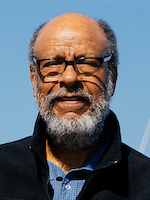 Bernard Powers
Bernard Powers
Director of the Center for the Study of Slavery in Charleston | Professor Emeritus of History powersb@cofc.edu
Bernard Powers, professor emeritus of history at the College, is the inaugural director of the Center for the Study of Slavery in Charleston. Dr. Powers taught in the Department of History from 1992 to 2018, serving stints as department chair and director of the master’s program in history. He has published numerous works on African-American social and cultural history. His book Black Charlestonians: A Social History 1822-1885 (University of Arkansas Press, 1994) won a Choice Award for Best Academic Books. He also co-authored We Are Charleston: Tragedy and Triumph at Mother Emanuel (Thomas Nelson, 2016). His latest book is 101 African Americans Who Shaped South Carolina (USC Press, 2020). Powers is a member of the board of directors and interim CEO of the International African American Museum (IAAM), which is scheduled to open in Charleston in 2022. As a member of both CSSC and IAAM, Powers is developing a working relationship between both entities, with the goal of establishing joint public programs and academic partnership.Executive Board
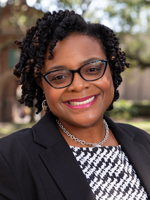 Shannon Eaves, Ph.D.
Shannon Eaves, Ph.D. Assistant Professor of History
eavess@cofc.edu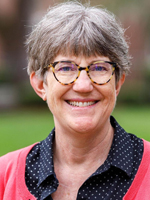 Julia Eichelberger, Ph.D.
Julia Eichelberger, Ph.D.
Professor of English and Director of the Southern Studies Program
eichelbergerj@cofc.edu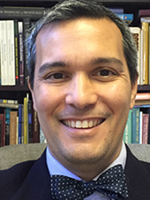 Grant Gilmore, Ph.D.
Grant Gilmore, Ph.D.
Associate Professor of Historic Preservation and Director of the Historic Preservation and Community Planning Program
gilmorer@cofc.edu Simon Lewis, Ph.D.
Simon Lewis, Ph.D.
Professor of English and Director of the Carolina Lowcountry and Atlantic World Program
lewiss@cofc.edu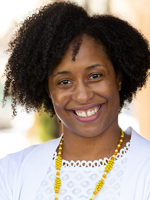 Kameelah Martin, Ph.D.
Kameelah Martin, Ph.D.
Dean of the Graduate School
martink@cofc.edu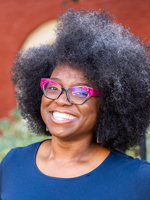 Tamara Butler, Ph.D.
Tamara Butler, Ph.D.
Executive Director, Avery Research Center of African American History and Culture
butlert@cofc.edu -
Universities Studying Slavery Consortium
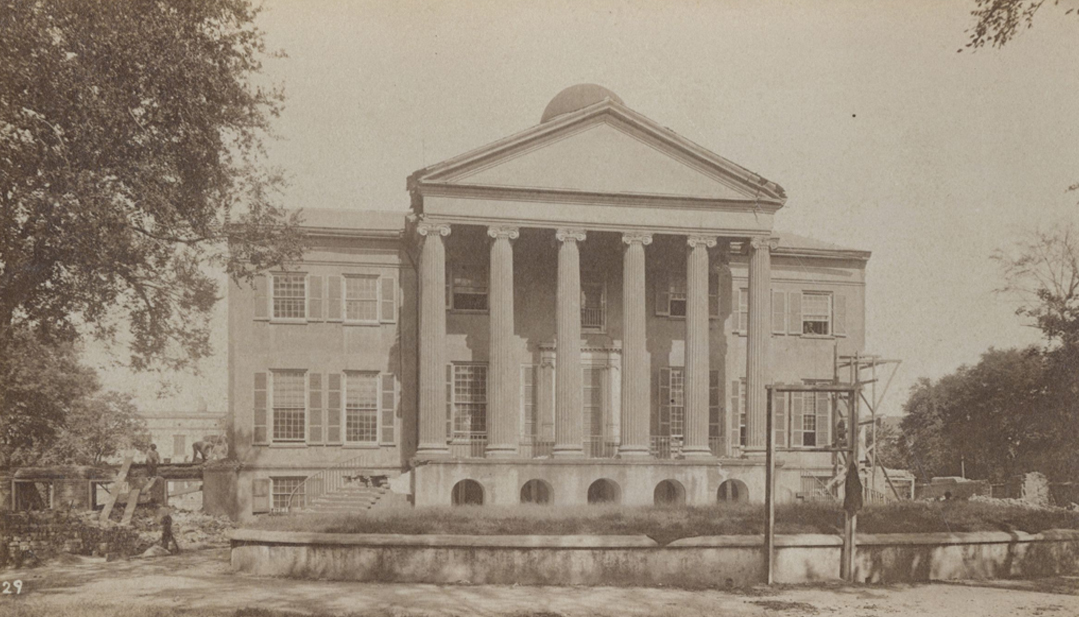
The Universities Studying Slavery (USS) consortium, created and led by the University of Virginia, represents a multi-institutional collaboration focused in sharing best practices and guiding principles about truth-telling projects addressing human bondage and racism in institutional histories.
Member schools are all committed to research, acknowledgment, and atonement regarding institutional ties to the slave trade, to enslavement on campus or abroad, and to enduring racism in school history and practice.
- Collaborative partnerships allow participating institutions to work together as they address both historical and contemporary issues dealing with race and inequality in higher education and in university communities.
- Development of strategies and intitiatives for individual institutions to commit school resources to addressing equity in the twenty-first century.
- Hosting of semi-annual meetings to discuss strategies, collaborate on research, and learn from one another.
- Collaborative partnerships allow participating institutions to work together as they address both historical and contemporary issues dealing with race and inequality in higher education and in university communities.
-
Partners & Affiliates
Get to know the diverse array of academic, cultural, and community organizations we're proud to work alongside in Charleston and beyond.